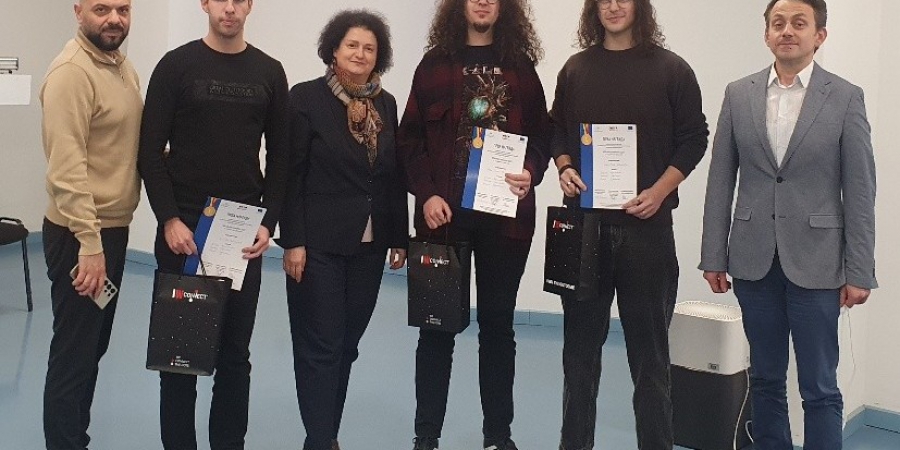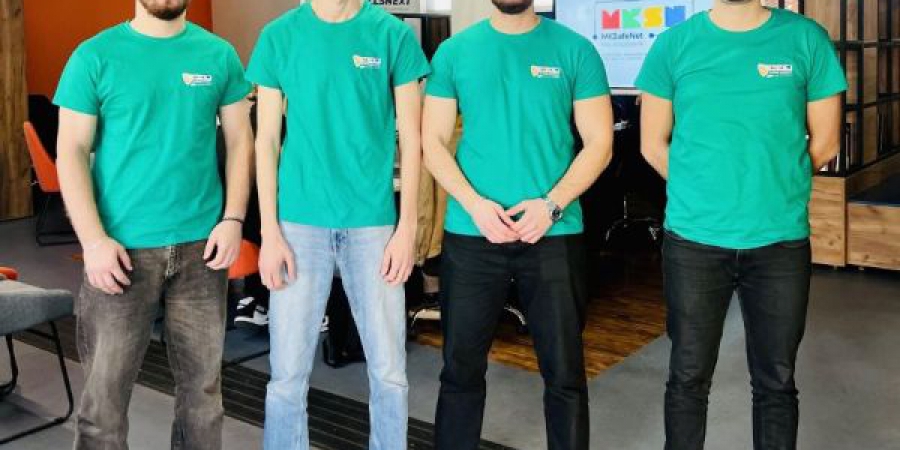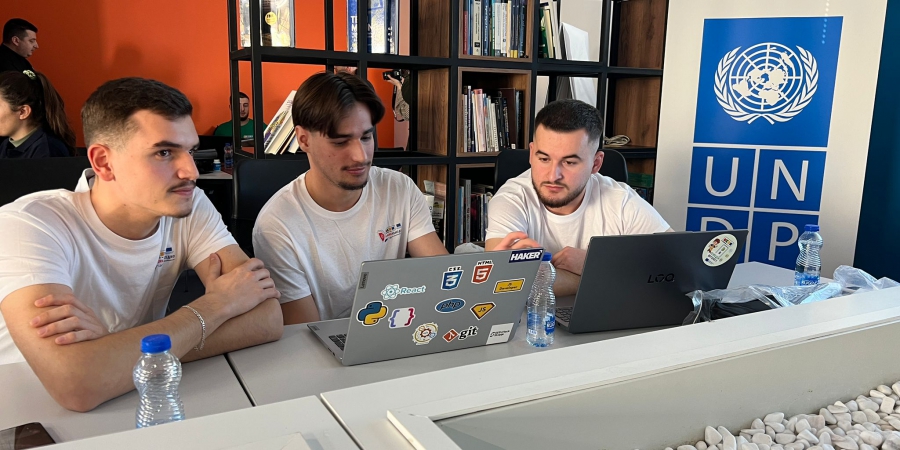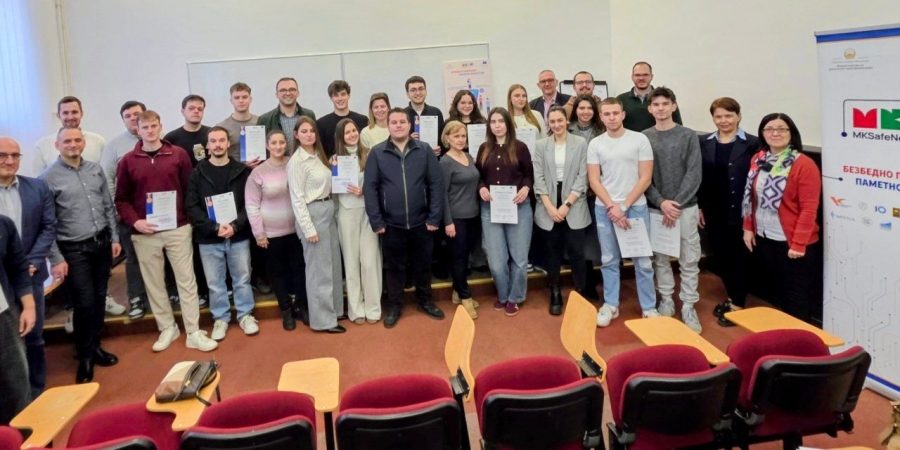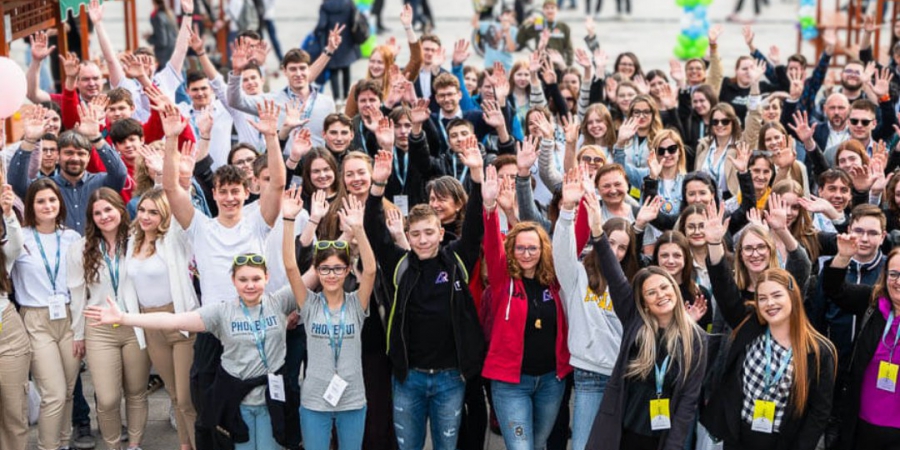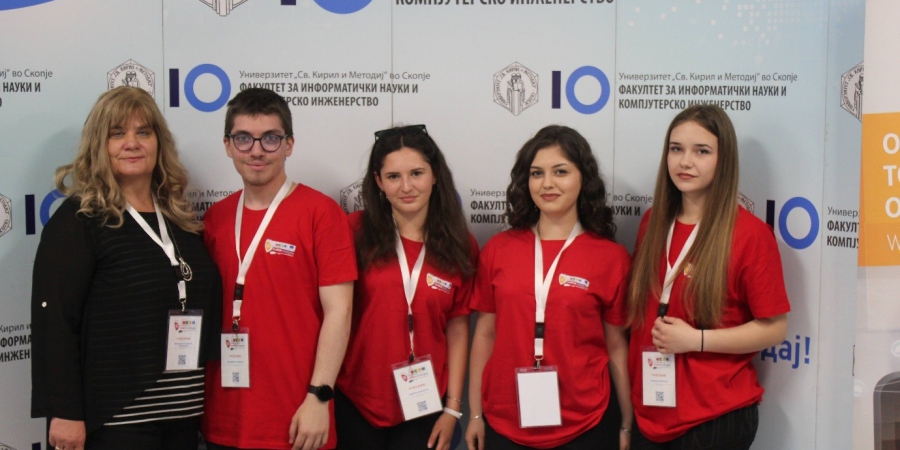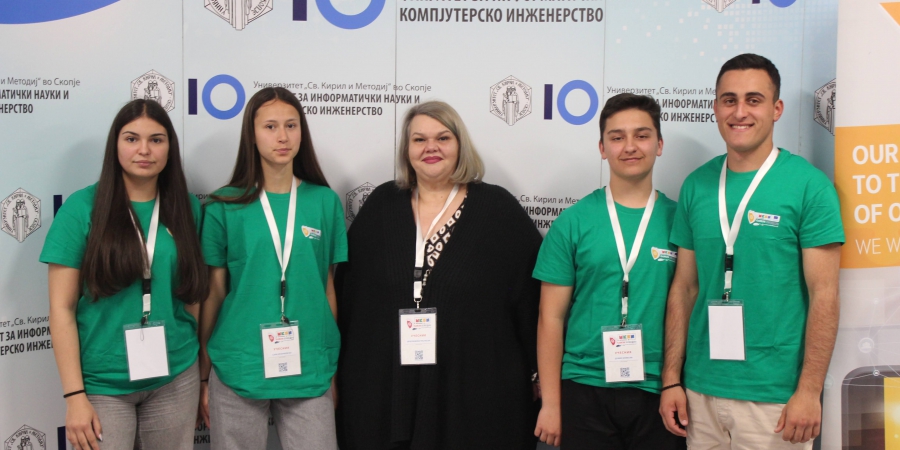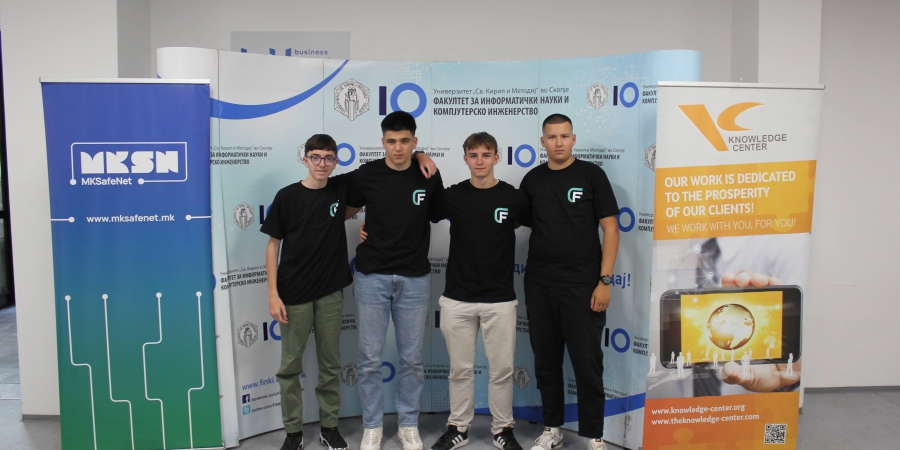Студија за профилирање на иновативноста на македонските компанииАндријана Богдановска, Wolfgang Schabereiter, Јулија Пелева СтојковскаАприл 2015СИМНИ ГО PDF ФАЈЛОТ |
KNOWLEDGE MANAGEMENT AS A COMPETITIVE ADVANTAGE OF COMPANIES
Bogdanovska Djurovic, Andrijana
Recommended Reference: Bogdanovska Djurovic, A. (2013).Knowledge Management as a Competitive Advantage of Companies. Proceedings of the 10th Conference on intellectual Capital, Knowledge Management and Organizational Learning - ICICKM 2013, George Washington University, USA
ABSTRACT:
By merging existing theory, discussion and research in the areas of strategic and knowledge management, the paper argues in favor of the basic assumption of all schools on strategy – competitive advantage results into a superior performance of contemporary companies. Causation, however, can only be justified when knowledge management is introduced as a moderator in the equation. Although recognized as an important resource as early as 1950s, knowledge did not gain in strategic value until the emergence of the Resource Based View on Strategy in the 1990s. Realizing that knowledge is a dynamic capability and that today’s knowledge although protected, is not a guarantee of tomorrow’s success, contemporary organizations approached knowledge management as a system comprised of four knowledge management processes: creation, organization, dissemination (transfer and sharing) and use (applicability), open to the influence of the wider external and internal environment considered through the social and technological context of organizations. By focusing on the internal context, the paper presents an empirical model which can be tested in different environments. The internal context reflects the influence of three predominant KM platforms: structure, culture and technology. In the process, technology is recognized as a main enabler for capturing, storing and distributing codified knowledge, while organizational structure that fosters KM processes as flexible, lean, team based and customer oriented. In regards to organizational culture, adaptive and flexible cultures are recognized as supportive to knowledge generation; while stable and hierarchical cultures supportive to knowledge storage in organizational routines. At the end, the effectiveness of KM as a competitive advantage is approached through identifying superior financial and non-financial performance.
OBSTACLES TO KNOWLEDGE SHARING IN PROJECT ENVIRONMENTS
Bogdanovska Djurovic, Andrijana
Recommended reference: Bogdanovska Djurovic, A. and Djurovic, B. (2013). Obstacles to Knowledge Sharing in Project Environments. Proceedings of the 10th Conference on intellectual Capital, Knowledge Management and Organizational Learning - ICICKM 2013, George Washington University, USA.
ABSTRACT:
Although knowledge has been recognized as a strategic resource of companies as early as the middle of the past century, it is actually the organizational school on strategy which lifted its significance to strategic relevance at the beginning of the 1990s. What once was the predominant view on knowledge focused on knowledge exploitation and protection, rapidly changed towards the importance of internal capabilities for strategically coordinating knowledge re-sources. As a result a new concept emerged focused on managing knowledge made out of an agreed set of processes: (1) generation, (2) organization and storage, (3) transfer and sharing and (4) application. The organizational view on knowledge proved to be too limited to cover the complexities of its actual use. In a global world of interconnected economies, increased competition and a micro-environment rapidly favoring inter-organizational synergies, accompanied with radical internal changes in organizational structure of companies where the traditional hierarchical structure has been rapidly replaced with project based matrix-es, superior knowledge was no longer created in closed environments, rather it increasingly depended on the process of sharing knowledge which occurs in inter and intra-organizational teams. In majority of the cases these teams are project teams. Researchers so far have tackled the knowledge sharing mechanisms which arise in these hybrid environments; however, there is a gap in literature regarding the obstacles to knowledge sharing. The critical analysis identifies the most common obstacles to knowledge sharing with and within project teams grouped into three specific categories: organizational, technological and individual/people related barriers. Organizational obstacles cover parent company’s organizational structure, culture, lack of project leadership and/or poor project management practices – all factors which create a lack of trust among team members and hinder the sharing of tacit knowledge. Technology obstacles are related to the lack of IT platforms for collecting and disseminating explicit project knowledge and lessons learned as well as the lack of strategic alignment of technology with the existing absorptive capacity of project team members. Individual factors cover the lack of motivation to share or receive knowledge, the poor communication skills, the gap in experience among project members and the low absorptive capacity of knowledge receivers in general. The paper therefore provides a good categorization of the obstacles which can be further adjusted and explored with empirical research on the subject.
THE RELATIONSHIP BETWEEN TRADE AND INDUSTRY STRUCTURE - EU NEW AND OLD COUNTRIES
Bogdanovska Djurovic, Andrijana
Recommended Reference: Bogdanovska Djurovic, Andrijana, The Relationship between Trade and Industry Structure – EU New and Old Countries (July 11, 2011). Available at SSRN: http://ssrn.com/paper=1942309
ABSTRACT
The study is a bi-directional study on the correlation of the trade and industry structure; two factors with a strong impact on the economic growth of countries. The analysis consists of extensive and detailed research on literature used in the development of the model which is tested empirically with data from the EU new and old member countries. It is a quantitative, inferential study with a general use of descriptive statistics.
The results indicate that from the new EU states, Bulgaria is an absolute winner, with a move of the economy into the higher value-added sectors. Slovakia is a relative looser, while from the old EU member states, Spain has benefited the most from the EU enlargement.
The findings emphasize an existence of a connection between the two variables when the gravity model is used. It supports the findings of the previous empirical research in the area.
FDI IMPACT ON THE ECONOMIC GROWTH IN THE DEVELOPING COUNTRIES (2000-2010)
Bogdanovska Djurovic, Andrijana
Recommended reference: Bogdanovska Djurovic, Andrijana, FDI Impact on the Economic Growth in the Developing Countries (2000-2010) (July 10, 2011). Available at SSRN: http://ssrn.com/abstract=1941665
ABSTRACT
Foreign Direct Investments (FDIs) are a valuable tool for internationalisation of businesses in the global economy. They are seen as an instrument for technological development, knowledge transfer, economic growth and productivity enrichment.
The aim of the study is to analyse the impact of inward FDIs onto the economic growth in developing countries for the past decade. The research methodology used is based on the deductive research approach, based on quantitative data generated from secondary sources and a time-series analysis on a sample of developing nations.
The results provide an updated analysis on the impact of FDI on the economic growth through the application of several control factors. Findings indicate that inward FDIs were attracted to the developing nations with higher availability of educated labour, higher government spending and more efficient quality of governance. In the process, the level of education although significant, was not recognised as a factor with strong effect, implying that the level of education (secondary education) is losing its overall value and is becoming a cost for the developing nations.
The findings and conclusions of the study are valuable for designing future policies and procedures and are especially beneficial for international organisations and governments, management of MNEs and the private sector.
JOINT VENTURES (JVC) VS. WHOLLY OWNED ENTERPRISES (WHOES) REVIEW OF CURRENT TRENDS
Bogdanovska Djurovic, Andrijana
Publication: Економски развој (Economic development) [1-2/2010]
Recommended reference: Bogdanovska Djurovic, Andrijana, Joint Ventures (JVC) vs. wholly Owned Enterprises (WHOES) Review of Current Trends. Available at CEEOL: http://www.ceeol.com/aspx/authordetails.aspx?authorid=70983f8f-a7e5-4861-90f8-e8ba6deca9fb
ABSTRACT
The increasing globalization of business, the opening of traditionally closed markets, and the emergence of innovative organizational forms have heightened concerns over issues relating to international entry strategies. While the process of internationalization raises a number of issues for a company, such as the choice of product market, the form of governance and the partnering strategy, the provided analysis in this review will focus on the influence that the relaxation of restrictions on foreign ownership had on the entry strategy of companies across many industries. Specifically, the analysis is made on the preferences of companies regarding the entry mode in international markets: a wholly-owned enterprise (WHOEs) vs. an international Joint Venture (JVCs).
The analysis is focused on countries like India and China, due to the fact that these countries attract the highest amount of FDIs, are seen as the most attractive foreign markets for the future, have been marked by heavily regulated FDI market in the past and have introduced extensive changes in the requirements regarding ownership structure of foreign direct investments (UNCTAD 2009a).
The purpose is to provide a comprehensive analysis of the reasons that have led to the change in preferences in the market entry strategies of companies and to critically discuss the relative advantages and disadvantages of JVCs versus the WHOEs as an entry mode.
FDI AND HUMAN CAPITAL FORMATION IN SOUTH-EASTERN EUROPE FOCUSING ON REPUBLIC OF MACEDONIA
Bogdanovska Djurovic, Andrijana
Publication: Економски развој (Economic development) [3/2008]
Recommended reference: Bogdanovska Djurovic, Andrijana, FDI and Human Capital Formation In South-Eastern Europe Focusing on Republic of Macedonia. Available at CEEOL: http://www.ceeol.com/aspx/publicationdetails.aspx?issueId=63c517b7-534b-408b-a03a-f9cae01d0c28
ABSTRACT
Republic of Macedonia practiced, and continues to practice a passive FDI dependent strategy. An Investment Promotion Agency (IPA) has been recently established, but there are no specific FDI coordinated activities for the country’s promotion, and no clear strategic positioning compared to neighbours. Republic of Macedonia is a small market and although it has FTAs (free trade agreements) with most of the countries in the region, is not attractive for foreign investors, which find Romania and Bulgaria to be more suitable destinations due to their EU accession in 2007, their larger markets and the allocation of the EU structural funds. These developments determine the position of the country on the external playground, with limited short-term possibilities for change (next 2-3 years). In this situation, a solid knowledge of all available in-country resources is significant for developing and implementing a more assertive FDI dependent strategy.
The aim of this study is to analyse the importance of Human capital for attraction of FDIs and the further opportunities arising from FDIs in developing the HC of the country. Research methodology applied is explanatory quantitative research covering a survey of employees in MNEs and follow up interviews with MNEs managers.
At the moment MNEs influence human capital formation in Republic of Macedonia at two levels:
(1) MNEs tend to transfer technology and knowledge onto their subsidiaries and provide many training opportunities for its employees than before. The offered trainings are in work related and job securing skills, and they tend to under invest in development activities.
(2) MNEs influence the local business community and transfer technology and knowledge through imposing higher standards on quality and after care activities. As a result of MNEs entry on the local market, local companies – vertical link, invested in new technology, human capital and employed new labour. In the sectors where MNEs have local competition, they caused technology and knowledge transfer onto horizontal links by pressing local competitors in improving its physical and human capacities for producing more competitive products/services.
INFLUENCE OF MULTINATIONAL ENTERPRISES IN THE HUMAN CAPITAL FORMATION IN THE REPUBLIC OF MACEDONIA
Bogdanovska Djurovic, Andrijana
Publication: Економски развој (Economic development) [2/2008]
Recommended reference: Bogdanovska Djurovic, Andrijana, Influence of Multinational Enterprises in the Human Capital Formation in the Republic of Macedonia. Available at CEEOL: http://www.ceeol.com/aspx/publicationdetails.aspx?issueId=7df4ba0a-bccb-4337-b34e-c7c243d72d72
ABSTRACT
The study on the influence of Multinational Enterprises on Human Capital Formation in R.Macedonia consists of a research on two important factors influencing country's economy and determining its future growth.
It builds on literature findings that indicate the importance of two types of activities through which MNEs contribute to the development of the Human Capital in the host economy. They are:
- Direct spillovers - increase in the rate of employment of the host-country and technology and knowledge transfer from MNEs to its local subsidiaries;
- Indirect spillovers - technology and knowledge transfer through vertical and horizontal linkages, and other forms of support of the wider community.
Research methodology applied is qualitative field research covering semi-structured interviews with managers of MNEs and local companies - part of MNEs horizontal and vertical linkages.
The research findings confirm that MNEs have an influence on Human Capital formation in Republic of Macedonia, although this influence is very limited and covers technology and knowledge transfer onto MNEs subsidiaries – direct spillovers. In the indirect spillovers, MNEs influence on human capital development is insignificant, because MNEs do not use many local companies as suppliers in the country. In the industries where MNEs use local suppliers and/or have local competition, these companies influence the local business community and transfer technology and knowledge through imposing higher standards on quality and after care activities.
Пишете ни на Оваа е-адреса е заштитена од спамботови. Треба да ви е овозможено JavaScript за да ја видите. ако сте заинтересирани да добиете примерок од објавените истражувања.
 Македонски
Македонски  English (UK)
English (UK) 
